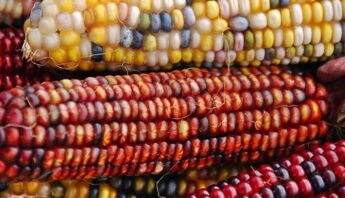For Immediate Release: October 2, 2012
Contact: Paul Towers, 916-216-1082, ptowers@panna.org
New Study: Genetically Engineered Crops Drive up Pesticide Use
USDA data demonstrates that GE crops have led to 400 million pound increase in pesticide use in nation’s fields
Oakland, CA – Genetically engineered (GE) seeds and crops have led to a dramatic increase in pesticide use over the past sixteen years, and use will grow even more if USDA approves the next wave of GE crops. According to a new report out of Washington State University pulled from USDA data and published Friday in the journal Environmental Sciences Europe, total pesticide use has increased by 400 million pounds. On average last year, GE crops used 20% more pesticides than non-GE crops, and the next wave of 2,4-D resistant crops are expected to drive herbicide use up by an additional 50%. These findings take on particular relevance as California voters consider Proposition 37, or the “Right to Know” initiative, which would require labeling of genetically engineered foods.
In response to the new study, Marcia Ishii-Eiteman, PhD, a senior scientist at Pesticide Action Network, released the following statement:
“Dr. Benbrook’s study shatters one of industry’s long-standing myths. It’s clear from USDA data that genetically engineered crops have driven up overall pesticide use across the country, including 400 million more pounds of pesticides. And the increase in pesticide use is expected to continue unless we change the course of our food and farming system.”
“The study reminds us that the pesticide treadmill is in full-force. At least two-dozen types of weeds are now resistant to glyphosate, the main ingredient in Monsanto’s Roundup. As these ‘superweeds’ become increasingly resistant to glyphosate, farmers use greater quantities of the product, and eventually resort to older, even more dangerous pesticides. As the Benbrook study notes, farmers will be on the hook for these less effective, increasingly hazardous and expensive products.”
“The next cycle of the treadmill is especially frightening. 2,4-D-resistant corn is the first in a new flood of industry products currently under consideration by USDA. If the agency approves it and other 2,4-D crops, projected use of this dangerous pesticide in corn is expected to increase nearly 30-fold over the next seven years, putting farms, farmers and rural communities in harm’s way. The chemical has been linked to birth defects and cancer, and children are especially susceptible to its effects.”
“Monsanto, Dow Agrosciences and DuPont stand to benefit the most from the continued use of glyphosate and expected surge in 2,4-D and other chemical sales that will accompany the next round of herbicide-based GE crops. So it should be no surprise that the largest opponents of California’s ‘Right to Know’ initiative are the pesticide companies, together spending nearly $20 million to defeat the initiative. These ‘Big 6’ pesticide and genetically engineered seed firms are attempting to obscure the science and keep consumers in the dark, as they market the new generation of GE crops and increase sale of hazardous herbicides.”
Additional resources for editors and reporters:
- Summary of existing research on genetic engineering.
- Additional information on 2,4-D corn and the other genetically engineered crops in the pipeline.
- Major findings and summary of new report from Washington State University.
****
Pesticide Action Network North America (PAN North America, or PANNA) works to replace the use of hazardous pesticides with ecologically sound and socially just alternatives. As one of five PAN Regional Centers worldwide, we link local and international consumer, labor, health, environment and agriculture groups into an international citizens’ action network. This network challenges the global proliferation of pesticides, defends basic rights to health and environmental quality, and works to ensure the transition to a just and viable society.







